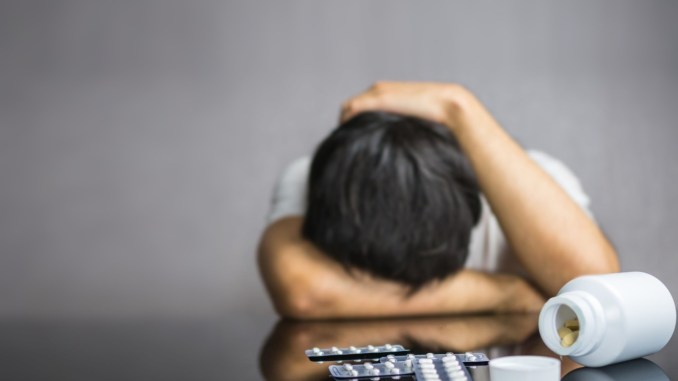From codeine to methadone all the way to heroin, opiates aren’t something to be taken on a whim. While some of them have some great medical applications, abusing opiates is an extremely slippery slope. When you take opiates in any form, you’re more at risk of dependency than with any kind of recreational drug. I know that slipping into such a powerful addiction can feel like there’s no way out, but there are many good courses of treatment you could consider. However you choose to beat your addiction, one of the important factors to understand is your withdrawal symptoms. Read on!
The first thing you probably want to know is how long withdrawals last. I’d like to be able to give you a definite answer, but unfortunately I can’t. The extent of the withdrawals all depends on how long you’ve been addicted, and the kind of opiate that has you hooked. The period to get through codeine withdrawal is usually completely manageable. However, I’ve met some heroin addicts who haven’t touched a drug in years, and yet they still get the craving for a hit every day. While physical withdrawals fade, the psychological side of an opiate addiction may well follow you the rest of your life. Still, the sooner you beat your addiction, the better your future quality of life will be. Attempts have been made to write up an accurate withdrawal timeline, but all of these should be taken with a pinch of salt. Someone who’s been on a codeine prescription for a month or two and is craving more of it will have a much easier time than a heroin user of 20 years. However, most opiate withdrawals are consistent enough to draw up a rough guide.
The first two days are the hardest to get through, as any former addict will tell you. This is where you’re most at risk of having a relapse, so stay strong! The real symptoms start to appear roughly twelve hours after your first hit. You’ll probably notice lighter signs of it even before that, like a slight irritation. When your body goes into withdrawal, the most immediate symptom you’ll notice is aches and pains in the muscles. You’ll begin sweating profusely, may experience diarrhoea, will lose your appetite and will probably have trouble getting to sleep. All of this is commonly accompanied by strong anxiety, which my spiral into a panic attack. The diarrhoea will probably cease after three to five days after your last hit. Although your appetite will remain very weak, you should really force yourself to eat something. It will help in the long run. The muscle pains would have regressed a lot by the 3-5 day mark. However, you may still experience painful abdominal twinges which pop up sporadically. By the time you make it a full week from your last hit, you’ll be more than halfway free of your opiate addiction. You may have spells of nausea and anxiety. However, these will be far less severe compared to the first couple of days you went through.
None of this sounds pleasant, I know. However, there are some things you can do which will mitigate the pains of your withdrawal. The most important precaution to take is making sure you don’t do it alone. Whether you check into a full rehab program or you just have a close friend with you, someone should know that you’re trying to kick your addiction. Although opiate withdrawals are certainly physical, the mental strain of is often a huge factor in relapse. When you’re trying to shake the habit on your own, it can feel a lot harder than when someone’s there to help you through it. Your doctor might recommend you wean yourself off using a weaker opiate than the one you’re addicted to. Klonopin and Valium are a couple of medicines which could make the withdrawal process easier. Just be aware that these are addictive too, and you could end up subbing out one habit for another. After you’ve made it out of the first week, it may be worth signing yourself up to further treatment. You’ll still be at serious risk of a relapse, and may even have a few physical withdrawals. Remember that your recovery should be seen as a lifelong commitment. Even after you’ve kicked the drug, you need to work at maintaining your healthy mind-set.
Conquering opiate withdrawals is one of the hardest things you’ll ever have to do. However, once you’re out of the woods, your life will become so much brighter. Make sure to ask for help where you need it, and keep reminding yourself why you’re quitting!




